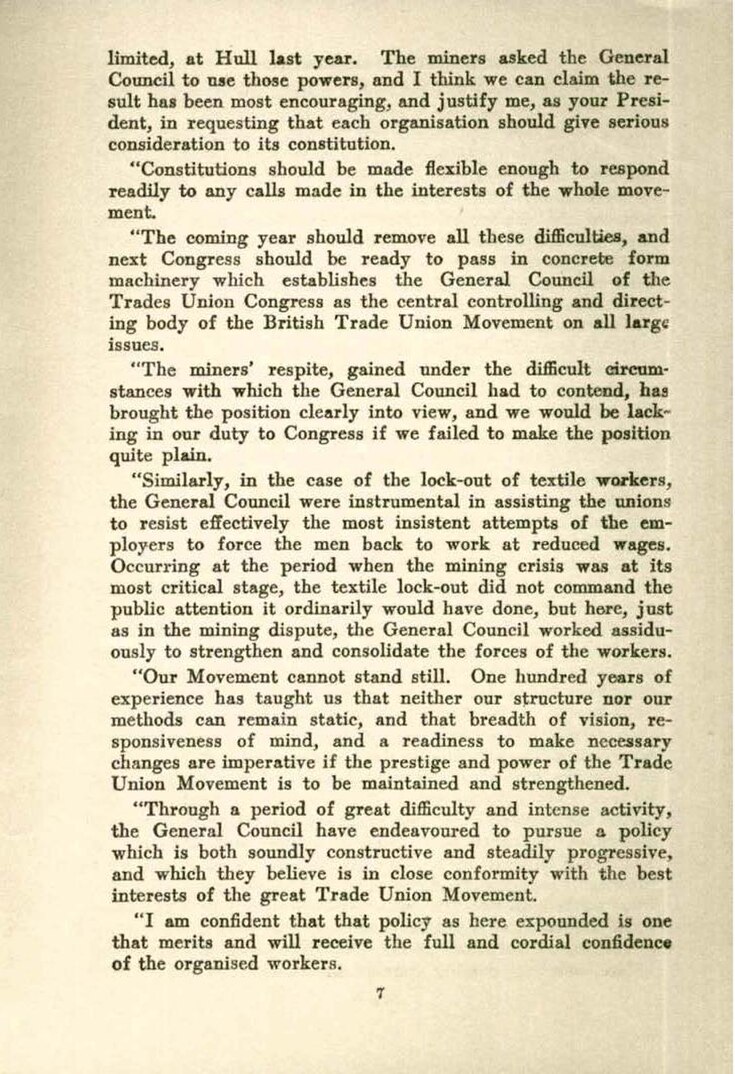limited, at Hull last year. The miners asked the General Council to use those powers, and I think we can claim the result has been most encouraging, and justify me, as your President, in requesting that each organisation should give serious consideration to its constitution.
"Constitutions should be made flexible enough to respond readily to any calls made in the interests of the whole movement.
"The coming year should remove all these difficulties, and next Congress should be ready to pass in concrete form machinery which establishes the General Council of the Trades Union Congress as the central controlling and directing body of the British Trade Union Movement on all large issues.
"The miners' respite, gained under the difficult circumstances with which the General Council had to contend, has brought the position clearly into view, and we would be lacking in our duty to Congress if we failed to make the position quite plain.
"Similarly, in the case of the lock-out of textile workers, the General Council were instrumental in assisting the unions to resist effectively the most insistent attempts of the employers to force the men back to work at reduced wages. Occurring at the period when the mining crisis was at its most critical stage, the textile lock-out did not command the public attention it ordinarily would have done, but here, just as in the mining dispute, the General Council worked assiduously to strengthen and consolidate the forces of the workers.
"Our Movement cannot stand still. One hundred years of experience has taught us that neither our structure nor our methods can remain static, and that breadth of vision, responsiveness of mind, and a readiness to make necessary changes are imperative if the prestige and power of the Trade Union Movement is to be maintained and strengthened.
"Through a period of great difficulty and intense activity, the General Council have endeavoured to pursue a policy which is both soundly constructive and steadily progressive, and which they believe is in close conformity with the best interests of the great Trade Union Movement.
"I am confident that that policy as here expounded is one that merits and will receive the full and cordial confidence of the organised workers.
7
